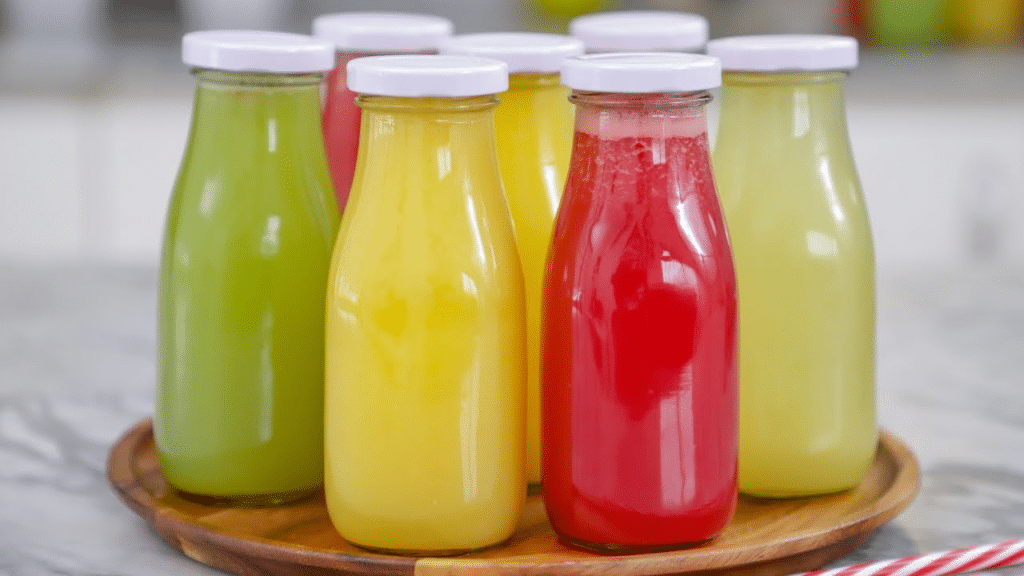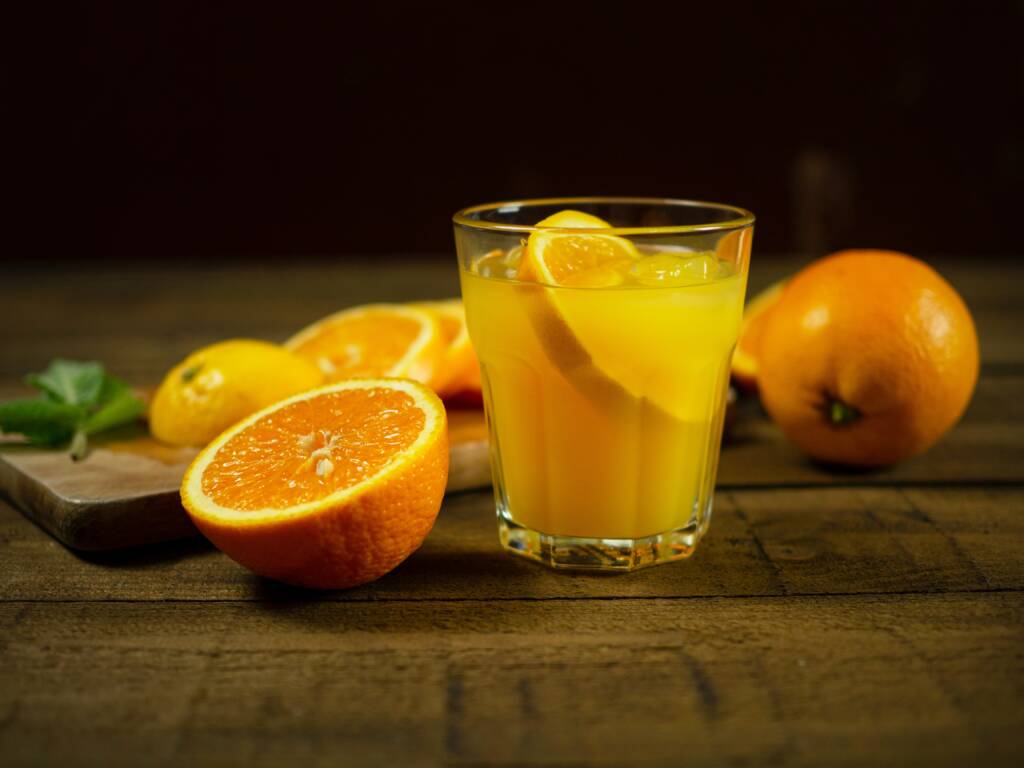
Although drinking juice soon after it is made is the best way to take it, making it ahead of time can be a great time saver for many of us. Being prepared can make it easier to consume juice regularly.
So, what happens if we prepare them in advance? We keep them! Juice storage can be a lifesaver for a juicer. Work responsibilities, travel, personal issues, and a hectic schedule make it challenging to consume freshly made juices immediately.
How do you keep the colour and flavour of fruit juice during juicing?
By following the juicing suggestions below, you may decrease the browning and oxidation of fruit juice and extend its shelf life. You can utilise any of them or combine multiple of them.
Before juicing, chill the fruits.
The temperature affects enzyme activity. Enzymatic activity decreases by about 50% for every ten °C drops. Most fruits can be chilled above 0°C before juicing. However, never chill subtropical fruits such as bananas, mangoes, and strawberries, as this will degrade their quality.
Although deep freezing kills browning enzymes, it does not kill flavour-generating enzymes. If the fruits were frozen, defrost them before juicing.
Before juicing, soak the fruits in boiling water.
A brief immersion in hot water can deactivate browning enzymes and weaken fruit fibres. However, the boiling water will partially cook the fruits.
Take out the fruit pulps (optional)
Although some people prefer pulp in fruit juice; it includes enzymes that hasten fruit browning.
Reduce the PH of fruit juice
The lower the activity of enzymes, the more acidic the fruit juice. High acidity also directly affects dark pigment, lightening its colour.
Sealing with a vacuum
Even though some oxygen has dissolved in the juice, vacuum sealing can inhibit oxidation by eliminating air contact.
Make use of natural preservatives.
Browning can be prevented with vitamin C, citric acid, malic acid, and honey. The flavour can be preserved with essential oil, vitamin E, and a little fresh juice from a different batch.
It is preferable to consume fresh fruit juice immediately following juice extraction. However, not everyone has the time to squeeze fresh fruit juice daily. They want to keep it and drink it later. Then, how should fruit juice be stored to keep its colour and flavour?
How long will fresh fruit juice keep?
Three factors primarily influence the fruit juice preservation period:
The juice's acidity.
The more acidic the fruit juice, the longer it can be stored.
Citrus juice and grape juice, for example, have a longer shelf life, whereas apple juice and peach juice deteriorate quickly.
The Storage Environment
Fruit juice has the shortest shelf life when stored at room temperature and exposed. It can last longer in a sealed container and cold storage.
Types of fruit juicers
Because different juicers shatter the fruit cells to varying degrees, the oxidation rate varies. Juice made using a low-rpm juicer usually lasts longer than juice made with a centrifugal juicer.
How can I keep fruit juice fresher for longer?
Materials for suitable containers
Glass containers, such as wide-mouth mason jars, amber jars, or glass bottles, are ideal for storing fruit juice. A large opening jar makes cleaning juice stains simple.
Stainless steel water bottles are another fantastic option. However, plastic bottles have the potential to leach contaminants into the fruit juice being preserved.
It would help if you used a tiny container to sip the fruit juice without sealing it again.
To keep air out, seal securely.
One of the primary causes of fruit juice degradation is air. Fill the container with the extracted fruit juice all at once. Fill it to the brim or slightly overfill it, then replace the lids on the container. This procedure can help to reduce the amount of air in the juice bottle.
You can also use a professional vacuum filling apparatus or a hand-operated vacuum sealer to remove the air from the juice container.
Freeze or cold storage
Refrigerate the fruit juice after filling it into glass containers and sealed. Fruit juice lasts longer when kept at a low temperature. Acidic juice can be stored in the fridge for 3-5 days, whereas low-acidic juice can be stored for less than two days.
Apple cider is frequently frozen in ice and stored for an extended period. It is not a suitable method because freezing causes more flavour loss, but it will keep it from going bad.
To allow for expansion during freezing, do not fill the container. Leave a 0.5-inch gap at the top. Thaw them in the refrigerator and consume them all at once.
Fruit juice's acidity should be increased.
Fruit juice with high acidity can be more stable. Citrus juice’s vitamin C and antioxidant content can help to slow down degradation. Increase the acidity of your fruit juice by adding some lemon juice.
Conclusion
The most important thing to remember when preserving juice is to keep it in the refrigerator. The colder temperature will slow the oxidation process and help to keep the juice fresher for longer.
FAQs
What is the best juice preservative?
Preservatives in juices are typically sodium benzoate and potassium sorbate.
What kind of liquid will best preserve a fruit?
Canning liquids can be made from commercial unsweetened apple juice, pineapple juice, or white grape juice. These can be used immediately or after being diluted with water.
At what temperature should juice be kept?
They go bad faster when stored below 50 degrees, becoming slimy and generating soft areas. I still recommend cooling the juice in the refrigerator before making it.





